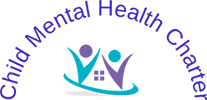As the Conservative Party Conference opens in Manchester, the Child Mental Health Charter Campaign hopes that the party of Government will answer the following questions:
- What’s in a name?
On 15th September the Prime Minister re-shuffled his Ministerial team and the Minister of State for Mental Health, Suicide Prevention and Patient Safety; Nadine Dorries MP left that role to become Secretary of State for Digital, Culture, Media and Sport (DCMS). By September 21st, although Government sources announced that the re-shuffle was complete, the Mental Health post remained unfilled.
On September 21st, in a House of Commons debate, Dr Lisa Cameron MP (SNP Lead for Mental Health) said:
‘It is important that we come out of this pandemic knowing that it is about wellbeing – it is a wellbeing recovery, and we must focus very much on mental health. I therefore hope that the Government will bring forward an announcement on the new mental health spokesperson in the near future. That is something that should be prioritised. I am sorry that it has not happened before now.’
The Minister of State at the Department for Health, Edward Agar, was unable to provide an answer – merely observing that he would not be adding mental health to his own portfolio.
There has been no official announcement, but today, 4th October 2021, the Government website states that Gillian Keegan, newly appointed to the Department of Health and Social Care on 15th September will now be called the ‘Minister of State for Mental Health and Care’.
With the draft Mental Health Bill set to be introduced to the House in 2022, it is a relief to know that there will at least be a specific Minister charged with the mental health portfolio. What we want now though, is a detailed description of precisely what MS Keegan will now oversee. What is meant by ‘Care’? What has happened to the ‘Suicide Prevention’ and ‘Patient Care’ aspects of the role? There are no new statistics indicating that patient safety is at an all-time high, or that there has been a huge dip in the incidence of suicide. If these questions are not answered at the Conference, we will be raising them when Parliament sits again on 18th October.
- What is the Government going to do to increase the number of therapists to include play therapists?
NHS statistics show that in June 2021, only 45% of children with NHS mental health appointments had a face-to-face interview, despite more than 2,200 children being referred for urgent mental health treatment, the highest figure on record. ‘Virtual’ appointments are financially low-cost and supposedly enable more people to be seen. However, 32% of children surveyed by MIND said that ‘onscreen’ appointments had caused their problems to worsen. A growing child mental health crisis is being fuelled because the Government is opting for a ‘cut-price’ service that will cost more in the long term as problems become entrenched, worsen and persist to darken the life course.
- Why has none of the money that the Government has announced for NHS and Social Care recovery been earmarked for children’s mental health?
According to the latest NHS data, in 2020, 1 in 6 children or young people had a mental health problem; an increase from the 1 in 9 recorded before the pandemic. In addition, children responding to Children’s Commissioner, Rachel de Souza’s ‘Big Ask’ project have expressed high levels of concern about their mental health.
Helen Clark, Director of the Child Mental Health Charter Campaign said:
‘These questions need answers NOW unless we want the recovery to be de-railed.
Everybody must now ask their own MP to raise these issues on the floor of the House of Commons and should write to the Secretary of State for Health and Social Care, Sajid Javid and Prime Minister, Boris Johnson.
Please forward all replies to helenrclark@ntlworld.com.
Help the Child Mental Health Charter Campaign to help children today.’
